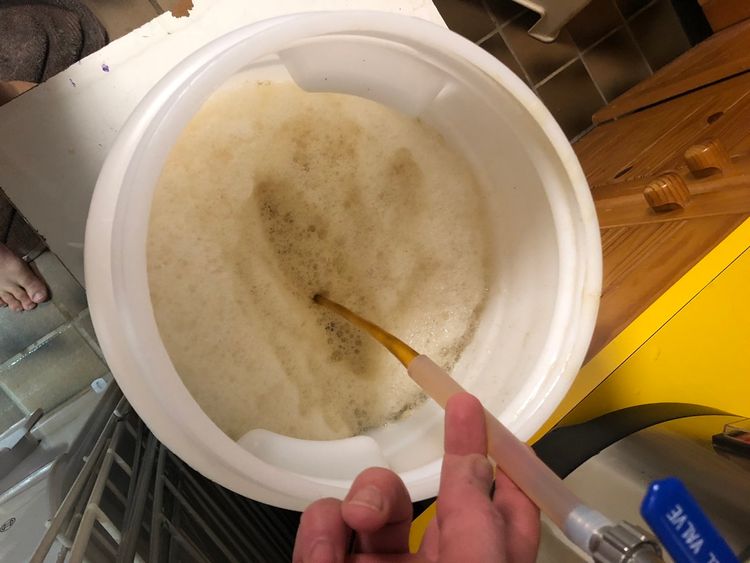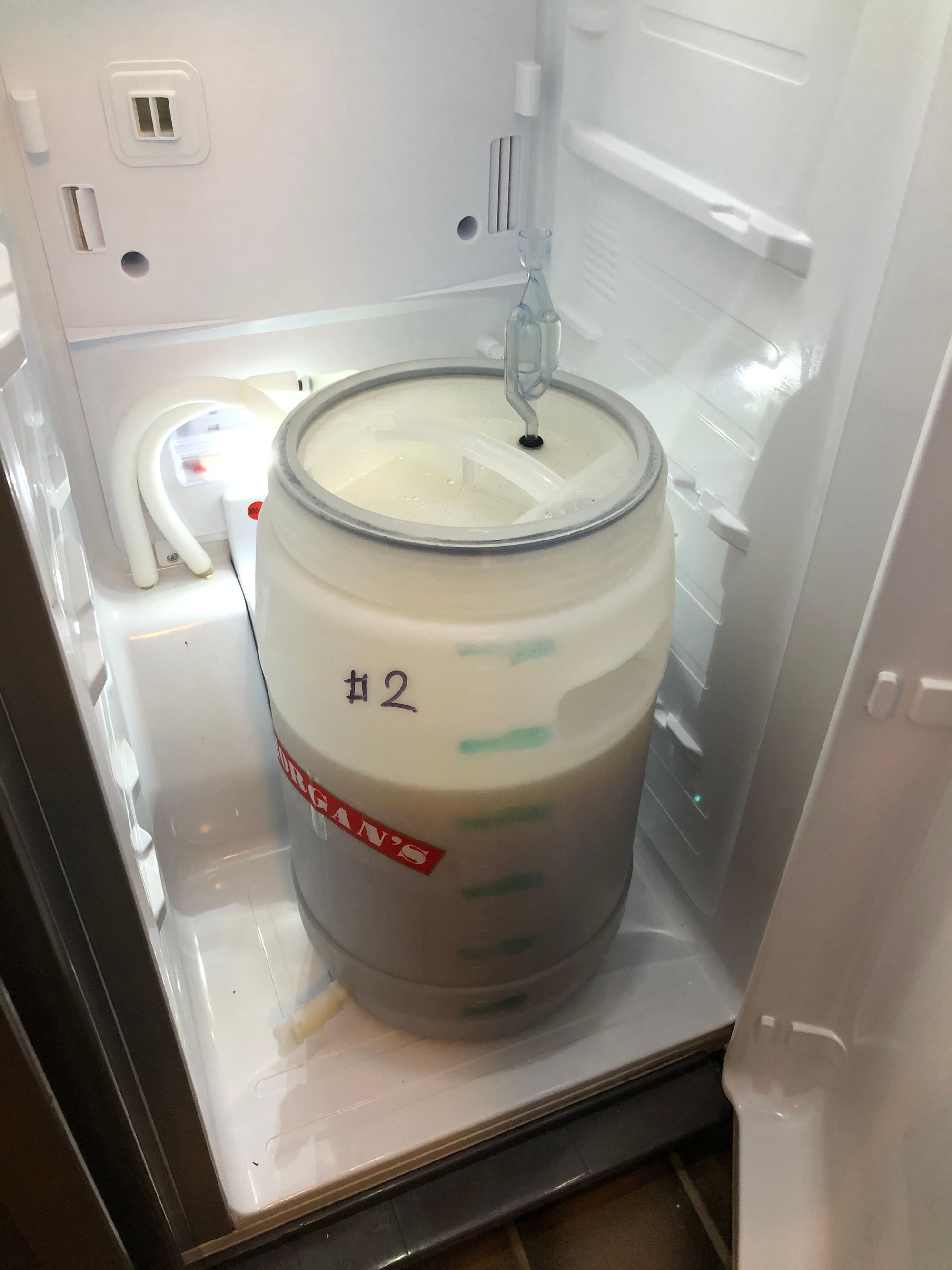Brew # 18 - Little Creatures Bright Ale Clone

This is a kit recipe for a Little Creatures Bright Ale clone I ordered from Aussie Brewmakers. As well as the ingredients, the kit includes easy-to-follow instructions that are described below. Within an hour from starting I was waiting for the temperature to reduce so I could pitch the yeast.
Start date: 16 OCT 21
Equipment
- Old-school HDPE fermenting bin
- Sanitiser in spray bottle
- Long handle spoon
- Paint strainer
- Kettle
Ingredients
- 1x 1.7kg Thomas Cooper Bootmaker Pale Ale kit tin
- 1x 1.5kg Briess CBW Pale liquid malt extract (LME)
- 250g light dried malt extract (DME)
- 150g cracked Munich grain
- 2x 12g Centennial finishing hops (like tea bags)
- 2x 12g Motueka finishing hops (like tea bags)
- 10g M44 US West Coast dried yeast pack





Cleaning/Sanitising
The fermenting bin was soaked in Sodium Percarbonate solution for a number of days before I started this process. This was emptied and rinsed with warm water and allowed to dry. I sprayed with Iodophor (iodine) to sanitise. Rinsed with cooled boiled water after about 3 mins.
Iodophor sanitization repeated with the long-handled spoon.
Brew Day
Part of these instructions are reproduced with permission from the Aussie Brewmakers recipe.
- Sit both extract tins in hot water for 10 mins
- Boil 1.25L water in kettle
- Step 150g cracked Munich grain in 1L water for 20 mins
- Steep 1x each of the Centennial and Motueka hop bags in 250ml of boiled water for 10 mins
- Boil 2L water in kettle
- Add 1.5L of the boiled water to the sanitized fermenting bin
- Add the Briess CBW Pale LME, plus the 250g light DME to the fermenter
- Stir to dissolve thoroughly
- Add TC Bootmaker Pale Ale kit tin to the fermenter
- Stir to dissolve thoroughly
- With boiled (hot) water rinse each of the tins into the fermenter
- Strain the steeped Munich grains into the fermenter (do not add the grains) - I used a paint strainer for this
- Rinse the grains - I used what boiled water I had left for this, then a couple of litres of cold water
- Add cold water to the fermenting bin to 22.5 litres - I used cold filtered water




Once added, the temperature was around the 30C mark, so I had to wait for the temperature to reduce to between 18-24 degrees before progressing.
During this time I took a hydrometer reading:
OG: 1.047 @ 27C = ~ 1.050 @ 20C
- Added the steeped hop bags and water
Once the temperature was achieved I opened the fermenting bin and pitched the dried yeast onto the surface of the wort.
Primary Fermentation
- Because I was using the HDPE fermenting bin, and not the Fermus, I attached the air lock - much easier than worrying about pressure and PRVs
- The wort started to show activity after ~24 hours - the downside of the HDPE is that it's opaque, so you can't see what's happening, but it was nice to hear the old 'gallump' of the air-lock again.
- Primary fermentation continued for another 4 days
Dry Hopping
- Add the 2 remaining hop tea bags and leave for 72 hours
Kegging
- Remove the hop bags from the fermenting bin and start to reduce the temperature of the beer (0.3C every two hours) until it reaches 4C
- Approx. 24 hours before the beer reaches 4C, place a cleaned and sanitised keg into the keezer and chill to ~4C
- Pressurise to 8PSI
- Transfer beer from fermenting bin to keg
- Allow to sit in the keg for at least a week, then attach a CO2 to keg at 49PSI for 36 hours to carbonate
- Drink
Improvements for next time
This was the quickest and easiest extract method I've followed, made possible by the pre-packaged ingredients - the proof remains in the pudding, but I'm confident enough with what I've smelt coming from the fermenting bin so far to have ordered my next kit from Aussie Brewmakers - their Balter XPA clone recipe kit.




